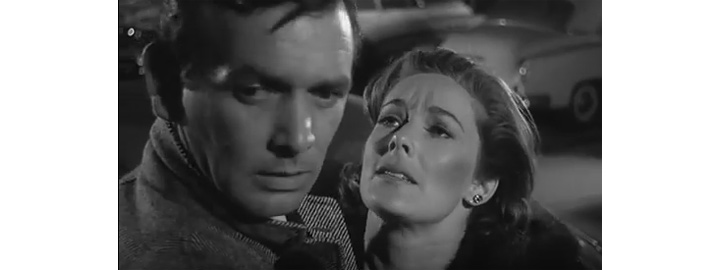|
The Fugitive
One of the most memorable characters in world literature is Javert, the police inspector who hounds Jean Valjean in Victor Hugo's masterpiece 'Les MisÚrables'. He is the obvious inspiration for the paradoxical role of Lieutenant Gerard, the likewise pedantic detective in the famous TV series, 'The Fugitive', hounding the runaway convict, Dr. Richard Kimble, who is played by the remarkable David Janssen. If ever a role suited an actor, this was it. And like Valjean what Richard Kimble is looking for is not to get away but somewhere to find redemption. It also draws on a moral premise of 'Les MisÚrables': the idea that one may be convicted unjustly and that in the end truth and decency will prevail. There is also the episodic nature of 'Les MisÚrables' which 'The Fugitive' picks up on; every episode has its own sub-title, each adventure proving the mettle and the goodly character of the protagonist.
In the first episode there are plot situations and characters that are definitely echoed later in 'Alice Doesn't Live Here Anymore', a film by Martin Scorsese. The guest stars, a smouldering Vera Miles and Brian Keith at his menacing best, play out a painful domestic drama with marvellous pathos. It is interesting that such a grand example of film noir, a rare piece of true adult cinema, was being watched on those tiny curved black and white screens.
The Bar-room is the great American public place where its much touted virtue of individualism finds its epiphany in the twists and turns of casual encounters - seemingly harmless people all wanting something deeper seeking permission to enter each other's lives, even just for a night. Human decency mingles freely with human cruelty and the participants, whilst being guarded, are terribly vulnerable on account of their hidden desires. The police move in when things go wrong to apply the rules of the law.
The series took the viewers all over America where the big questions of life, law and fate met the banality and the smallness of the daily struggles of its citizens - unable to feel settled in any town they try. Everyone is sort of just passing through. In some ways just watching the first episode is enough to understand what the rest of the series might be like. There is a strong resonance of Kafka's 'The Trial' right there when he tries to distract the policeman by starting a discourse on the nature of guilt that makes any perfectly innocent person nervous when arrested without knowing why. I will predict unhesitatingly, that 'The Fugitive' will one day become an American cultural icon for the zeitgeist of the fab 1960's. - Bevagna, 12 12 2016
|

